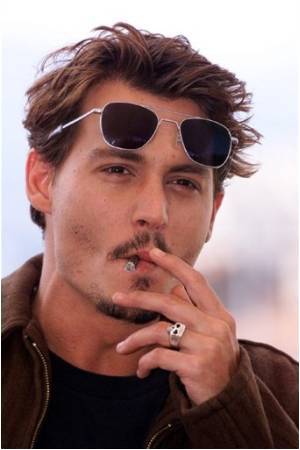
"It takes months of back-breaking manual labour, but nothing comes close to tobacco in terms of returns," said the 43-year-old farmer who has put two children through college with the earnings from his crops.
Habab sows the tobacco around November after the rice paddies dry up and harvests the leaves between February to May amid the region's long dry season.
They are cured in wood-fired barns that produce their golden-yellow tinge and, when he sells them to middle-men, he earns at least three times more than he would than if he had grown corn, peanuts or other alternatives.
Despite higher government taxes on cigarettes imposed by the national government this year, the industry is expanding with 84,000 tonnes of tobacco expected to be grown across the country's north this year.
This is about 13 percent higher than last year, according to National Tobacco Administration, the chief industry regulator.
Advertisement
Fifteen percent of the taxes on tobacco sales are by law returned to the areas that plant them, a bonanza worth $140 million each year, the regulatory agency said.
Advertisement
The two-decades-old law states the money must be spent on improving the lives of the farmers, and Singson said the tobacco funds had proved a lifeline for the formerly cash-strapped province.
"It's stirred our economy," he said.
However the tax funds are regarded by some critics as slush funds for the politicians who rule those areas, one element of entrenched corruption that has for decades been a trademark of Philippine politics.
Father Sammy Rosimo, a Catholic parish priest in Ilocos Sur, said the disposition of the levy funds was poorly regulated and thus a magnet for financial skulduggery.
"There are no checks and balances, so the officials entrusted with the money can spend them on pretty much anything," Rosimo told AFP.
In the most infamous case, Singson admitted he gave 130 million pesos ($3.1 million) in embezzled tobacco levy funds to then-president Joseph Estrada in 2000.
The admission, along with explosive evidence of other corrupt deals, led to Estrada's impeachment in 2001 and subsequent conviction in 2007 of plunder, or illegally enriching himself.
Singson won immunity by testifying at Estrada's trial.
Singson told AFP in a lengthy interview the embezzlement was a one-off misuse of the tobacco revenues, done as a misguided favour for his then-friend.
"I agreed to be used by a corrupt president," he said, while insisting he was not corrupt himself and that the tobacco levy funds had otherwise always been properly spent in his province.
"There's no graft and corruption... I'm not greedy," said Singson, who attributes his vast wealth to a successful business empire involved in many sectors including construction, transport and mining.
Ilocos Sur politics was shaped by a deadly fight for control of the province's tobacco trade.
The Crisologo clan, whose patriarch was a congressman and matriarch the provincial governor, demanded that all tobacco grown in Ilocos Sur in the 1960s be sold to a processing firm controlled by the family, according to Singson.
But Singson, their nephew and protege, began to sell tobacco elsewhere, claiming his uncle shortchanged farmers.
This angered the patriarch, Floro Crisologo, who sought to stamp out his new rival's challenge with a team of gunmen who, according to historical accounts, murdered many of Singson's allies.
Singson said he survived seven assassination attempts that claimed the lives of two bodyguards and 11 supporters.
"Everyday killings -- night and day you could hear gunfire," Singson said.
Politicians in the Philippines then, and now, often employ their own security forces and both sides in the family conflict were heavily armed.
In 1969, Singson defiantly but unsuccessfully ran against his uncle, who was an ally of then-president Ferdinand Marcos, for Crisologo's House of Representatives seat.
One turning point for Singson occurred in 1970 when the Crisologo patriarch was assassinated inside a local church during an afternoon Catholic mass.
Singson then defeated the widow in elections a year later to become provincial governor.
He has ever since been in control of Ilocos Sur -- either as governor or congressman, or with his allies in those posts.
When asked who he believed was responsible for Crisologo's murder, Singson replied: "Well, it was never solved because the whole province was celebrating when he was killed".
Singson, 71, added later that his security forces during the tobacco wars were on the defensive, and he did not order any killings.
Father Danilo Laeda, a parish priest in neighbouring Ilocos Norte province and another top tobacco-growing region, told AFP the golden leaf's levy had been a double-edged sword.
"It can work both ways. If the local executive is honest and has a clear vision of his municipality it will really work well. But it can become a huge milking cow," he told AFP.
Ilocos Norte is currently ruled by the wife and children of Marcos, the dictator who died in exile in 1989 after being toppled by a revolution three years earlier.
Source-AFP











